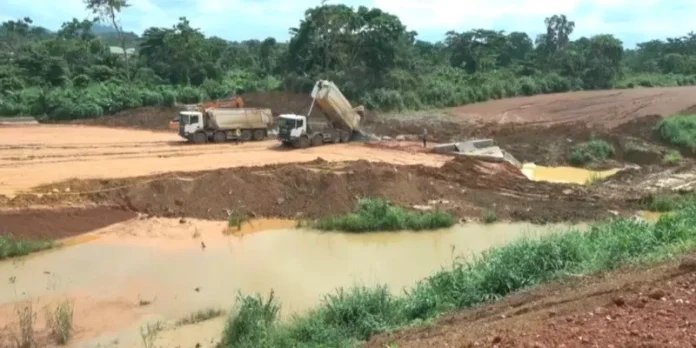
Lands and Natural Resources Minister Emmanuel Armah-Kofi Buah has revoked 278 small-scale mining licenses nationwide following regulatory breaches and expired operating permits. The announcement came through ministry spokesperson Paa Kwesi Schandorf on Thursday, October 23, signaling what appears to be the government’s most decisive enforcement action in the sector this year.
The revocations were authorized under the Minerals and Mining Act, 2006 (Act 703) and the Minerals and Mining (General) Regulations, 2012 (L.I. 2173), giving the action firm legal grounding. But what’s particularly striking here is the breadth of violations. The revoked licenses include operators who failed to comply with environmental and safety standards, as well as those who continued operations after their permits expired.
This isn’t the ministry’s first attempt at reform. Earlier this year, the government completed a national review of small-scale mining licenses, initially revoking more than 300 due to irregularities. That suggests this latest batch of 278 represents either a continuation of that broader sweep or a second wave targeting operators who didn’t get the message the first time around.
The timing matters, too. Ghana’s small-scale mining sector has long struggled with illegal operations, commonly known as galamsey, which have caused severe environmental damage to water bodies and forest reserves. The sector has been plagued by illegal operations and environmental degradation in recent years, making regulatory enforcement not just an administrative matter but an environmental imperative.
What sets this action apart from previous attempts is the apparent finality. There’s no mention of grace periods or opportunities to regularize operations. The ministry has simply published the list of affected companies and terminated their authorization to operate. The decision formed part of measures to strengthen governance in the management of mineral rights and ensure compliance within the small-scale mining sector.
The ministry has also introduced tracking devices and geo-fencing systems for excavators to ensure they operate only within licensed zones, suggesting that enforcement won’t stop at license revocation. The government appears to be building a technological infrastructure to monitor compliance in real time, which could fundamentally change how the sector operates.
For the 278 affected operators, this represents a complete shutdown of their businesses. Whether they can reapply under stricter conditions or face permanent exclusion from the sector remains unclear. What is clear, however, is that Minister Armah-Kofi Buah seems committed to following through on enforcement in a way his predecessors often promised but rarely delivered.
The real test will come in the months ahead. Will the ministry maintain this level of vigilance, or will enforcement slip as it has in the past? And perhaps more importantly, what happens to the communities that depended on these operations for employment? Those questions don’t have answers yet, but the government has at least demonstrated it’s willing to take the first difficult step.
